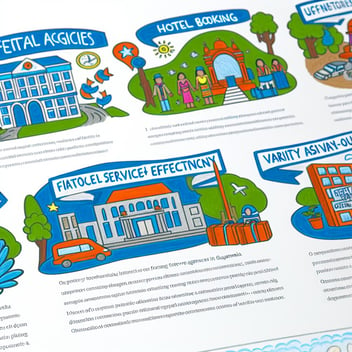In today's business environment, effective customer relationship management is crucial for success. This is where CRM (Customer Relationship Management) comes into play. CRM is a strategy and technology designed to manage a company's interactions with its customers and prospects. Next, we will explore what CRM is, its benefits, main platforms, and best practices for its implementation.
What is CRM?
CRM refers to a set of practices, strategies, and technologies that companies use to manage and analyze customer interactions throughout their lifecycle. The main objective is to improve business relationships, helping in customer retention and increasing sales. CRM platforms centralize customer information, providing a comprehensive view of their interactions with the company.
Benefits of CRM
-
Improvement in Customer Relationship Management: A CRM system allows you to keep a detailed record of your interactions with customers, from the first contact to the sale and beyond. This facilitates more effective and personalized communication.
-
Increase in Sales: By having access to detailed information about customers and their behaviors, your sales team can identify cross-selling and upselling opportunities, thereby improving revenue.
-
Process Optimization: CRMs automate repetitive tasks and administrative processes, allowing your team to focus on strategic activities such as relationship building and lead generation.
-
Better Decision-Making: With access to real-time data and analytics, companies can make informed decisions that improve operational efficiency and customer satisfaction.
-
Customer Retention: By better understanding your customers' needs and behaviors, you can implement more effective retention strategies, reducing churn rates and increasing loyalty.
-
Improved Collaboration: A CRM centralizes information, which facilitates collaboration between different departments, ensuring that everyone has access to the same information and works towards common goals.
Main CRM Platforms
-
HubSpot CRM: Known for its intuitive interface and free tools, HubSpot CRM is ideal for small and medium-sized businesses. It offers a robust set of features that include contact management, activity tracking, and detailed analytics. The ease of use and integration with other HubSpot tools make it a popular choice for companies looking for a comprehensive solution with no initial cost.
-
Salesforce: One of the most comprehensive and customizable CRM solutions on the market. Salesforce offers a wide range of tools for marketing automation, sales, and customer service, adapting to the needs of businesses of all sizes. Its ability to integrate with numerous third-party applications and its powerful analytics engine make it ideal for large organizations with complex needs.
-
Zoho CRM: Recognized for its versatility and affordability, Zoho CRM is a popular choice for companies seeking a comprehensive solution with artificial intelligence and automation capabilities. Zoho CRM stands out for its flexibility and customization capabilities, allowing companies to tailor the system to their specific processes.
-
Keap: Previously known as Infusionsoft, Keap is a CRM designed for small businesses looking to simplify their customer management with marketing and sales automation features. Keap focuses on ease of use and providing tools that help small businesses grow without the need for significant technical resources.
-
Pipedrive: Ideal for sales teams, Pipedrive offers a visual and user-friendly approach to sales pipeline management, helping companies close more deals in less time. Its sales-focused interface and ability to integrate communication and activity tracking tools make it especially useful for sales teams looking to improve their efficiency.
Implementation and Best Practices
To make the most of a CRM system, it is essential to follow some best practices:
-
Training and Adoption: Make sure your entire team is trained and comfortable using the CRM. Full adoption is crucial for success. Continuous training and support are essential to ensure that employees use the CRM effectively and make the most of its functionalities.
-
Integration with Other Tools: Integrate your CRM with other tools you use, such as email, social media, and marketing platforms. This allows for a more cohesive and efficient management of customer interactions across multiple channels.
-
Regular Analysis: Use CRM data to analyze the performance of your strategies and make adjustments as needed. Regular reports and analyses will help you identify areas for improvement and make data-driven decisions that drive your business growth.
-
Customization: Adjust the CRM to the specific needs of your business. Take advantage of the customization options to configure workflows, data fields, and processes that align with your business objectives.
-
Customer Focus: Keep the customer at the center of all decisions. Use the CRM to gather valuable information about customer preferences and behaviors, and use this information to improve the customer experience.
Conclusion
An effective CRM can transform the way you manage customer relationships, improving operational efficiency and increasing sales. By choosing the right platform and following best practices, your company can greatly benefit from this powerful tool.
For more information and resources on CRM, visit HubSpot CRM, Salesforce, Zoho CRM, Keap, and Pipedrive.





